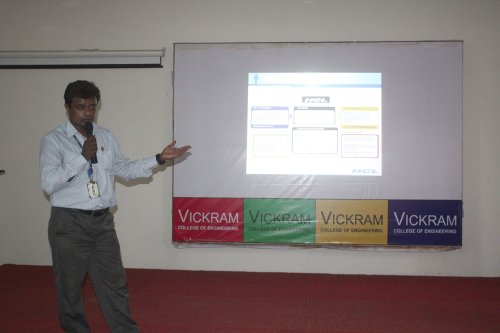- Written by Devi MGMT
- Hits: 2930
The Art of Concentration
The Art of Concentration
Your ability to concentrate has dramatic impact on the efficiency with which you do anything, even on the way you view and live your life. But it's a skill we seem to be losing. In the 21st century our 24/7 lifestyle enables - and expects - us to multitask constantly, to try to achieve more and more. In fact, this state of agitated distraction may even be physically harmful. Dr Dharma Singh Khalsa of the Alzheimer's Research Centre in Tuscon, Arizona, believes that the stress hormone cortisol is a fact in brain degeneration.But the good news is that you can change this; the brain continues to be "plastic" all your life. You can decide to improve your concentration - and current research suggests that in so doing you actually simulate the growth of new brain cells.
Techniques for Concentrating:
PREPARE Warming up to your task increases your chances of success. Rather than crashing into bed late the night before, then rushing out of the door in ten minutes flat to arrive late at your workplace, get a good night's sleep and rise early enough to have breakfast. Then take some exercise - even just walking for 20 minutes - before or on the way to work. Actively making "time out" between home and work creates an excellent space for thinking.
ORGANISE Start with the task you know requires the most concentration. You should be able to focus on this for up to 90 minutes, after which you'll benefit from a break. Allowing enough time for a task is important, because it can take your brain up to 20 minutes to "reboot" each time you have a break off and come back.When you've completed all you can, review what you've done, work out where you'll pick up again and make a note of the next steps you need to take.
Approaching work in an organised way - taking notes, creating mnemonics, asking questions - will also train your mind to receive information in an enquiring and engaged way for future tasks, even when you aren't making physical notes.
KNOW YOUR PURPOSE If you know where you're going with a project, you're much more likely to stay focused. If you have a big task to do, start by breaking it down into sections or stages.
REMOVE DISTRACTIONS A study by IT company Hewlett-Packard found that 62 percent of British adults were addicted to email, checking messages during meetings, after hours, even on holiday. It's been argued that there's a lot in common between these email users and gambling addicts - they get a reward only sometimes, but the chance of getting a reward keeps them going back.
Allocate time to answer emails, but don't interrupt another job to do so. If you have an email alert noise, switch it off.
When you do read an email, deal with it immediately - answer, file or delete.
Unless you need a reply, put "FYI only - no reply necessary" at the end of your email and encourage others to do the same
When you get unsolicited information you neither need nor want and there's an 'unsubscribe' option, use it
VISUALISE "I never hit a shot, not even in practice, without having a very sharp in-focus picture in my head," says championship golfer Jack Nicklaus. You too many find that envisaging your desired outcome helps you concentrate. Another strategy is to be consciously aware of times when you did really concentrate - not necessarily when working but maybe listening to music or doing a crossword puzzle. What did it feel like> Try visualising that same sensation.
LISTEN Active listening is different from just hearing. When listening to someone, look at them, make mental notes of the key points as you listen and make affirmative movements to acknowledge you're listening. You should be able to repeat back in your own words the gist of what's said.
Oddly, which ear you use can also be a factor. We naturally tend to favour one or the other when, say, using the phone, but theres evidence that the right ear us better for concentrating because it connects directly to the left brain, the side that processes language. Right-ear-dominant people do seem to find learning easier.
RELAX Fatigue is the enemy of concentration. Moreover, some leisure activities can actively promote you ability to focus. In the 1970s Mihaly Csikzentmigalyi professor of psychology and education at the Claremont Graduate University in the US, made a study of what he called "flow" - "being completely involved in an activity for its own sake". It's what athletes call being "in the zone", the holy grail of concentration. He found that it can be experienced when we relax, too: those who played sports and games experienced it 44 percent of the time, those who engaged in hobbies 34 percent and those who watched TV 13 percent. So not only can relaxation give you important downtime but it can also help you learn to concentrate better.
LIGHT UP YOUR LIFE
Good lighting aids concentration and full-spectrum light has been shown to be particularly helpful - it mimics daylight and inhibits the production of melatonin, a brain chemical that signals it's time for sleep. Avoid fluorescent light, which is tiring on the eyes because it flickers.
Source:Reader's Digest


